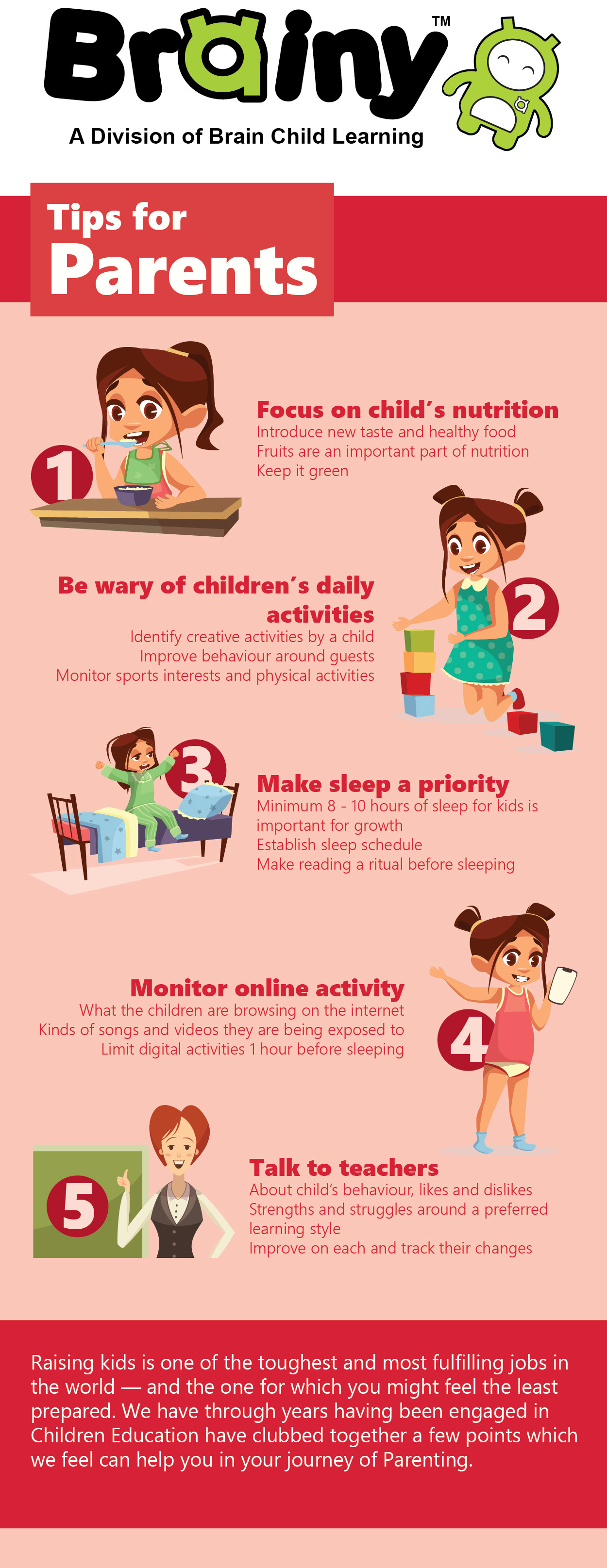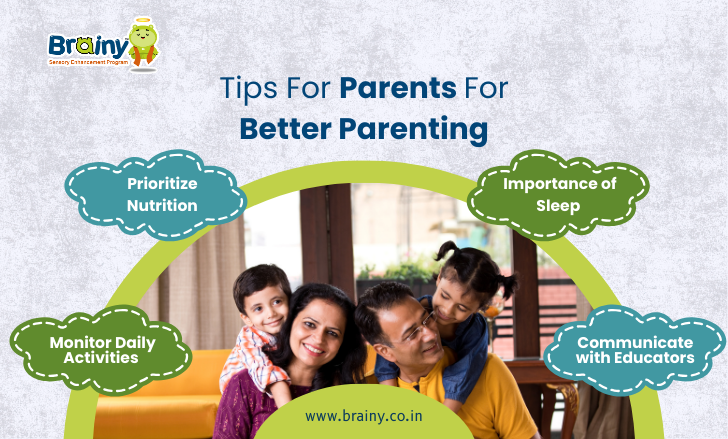Raising kids is one of the toughest and most fulfilling jobs in
the world — and the one for which you might feel the least
prepared. We have through years having been engaged in Children Education have clubbed together a few points which we feel can help you in your journey of Parenting.

1. Prioritize Nutrition
A balanced diet is crucial for a child's physical and mental growth. Parents should focus on introducing a variety of healthy foods to ensure a well-rounded intake of nutrients. Encouraging children to try new flavors and textures can help develop their palates. Incorporating plenty of fruits and vegetables into meals is not only nutritious but also instills good eating habits early on.
2. Monitor Daily Activities
Children are naturally curious and active. Observing their daily activities can provide insights into their preferences and talents. Whether it’s creative pursuits like drawing or physical activities like sports, supporting these interests helps boost their confidence and social skills. Additionally, monitoring how they interact with guests and behave in social settings can guide parents in teaching appropriate social behavior.
3. Emphasize the Importance of Sleep
Sleep is fundamental to a child’s health and well-being. Ensuring that children get 8-10 hours of sleep each night aids in their cognitive development and physical health. Establishing a consistent bedtime routine, including activities like reading, can make bedtime smoother and more enjoyable for children, setting the stage for a good night's sleep.
4. Supervise Online Engagement
In today’s digital age, children are increasingly exposed to the internet at a young age. It is vital for parents to monitor their online activities to protect them from inappropriate content and ensure they are engaging in age-appropriate discussions. Limiting screen time, especially before bedtime, can help avoid sleep disturbances and promote healthier life habits.
5. Communicate with Educators
Regular communication with teachers can provide valuable insights into a child’s academic and social development. Understanding their strengths, weaknesses, and learning preferences allows parents to better support their educational journey. Discussing behavioral patterns and academic struggles with teachers can also lead to strategies that aid in overcoming challenges.
Conclusion
Parenting requires a multifaceted approach, focusing on nurturing the physical, emotional, and intellectual development of children. By actively engaging in these areas, parents can significantly enhance their children’s growth and development, preparing them for a successful future. Remember, the key to effective parenting is consistency and open communication, ensuring that children feel supported and valued every step of the way.


